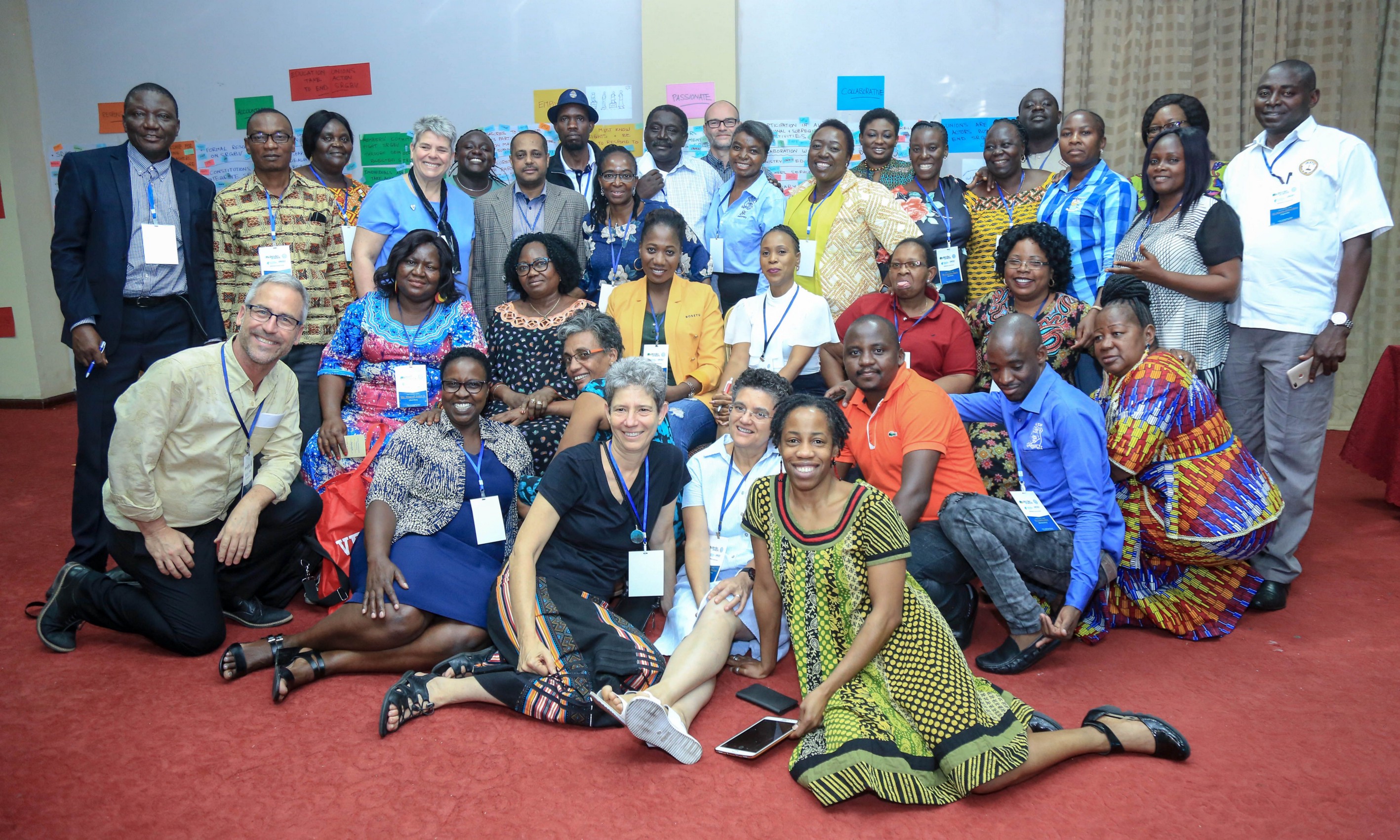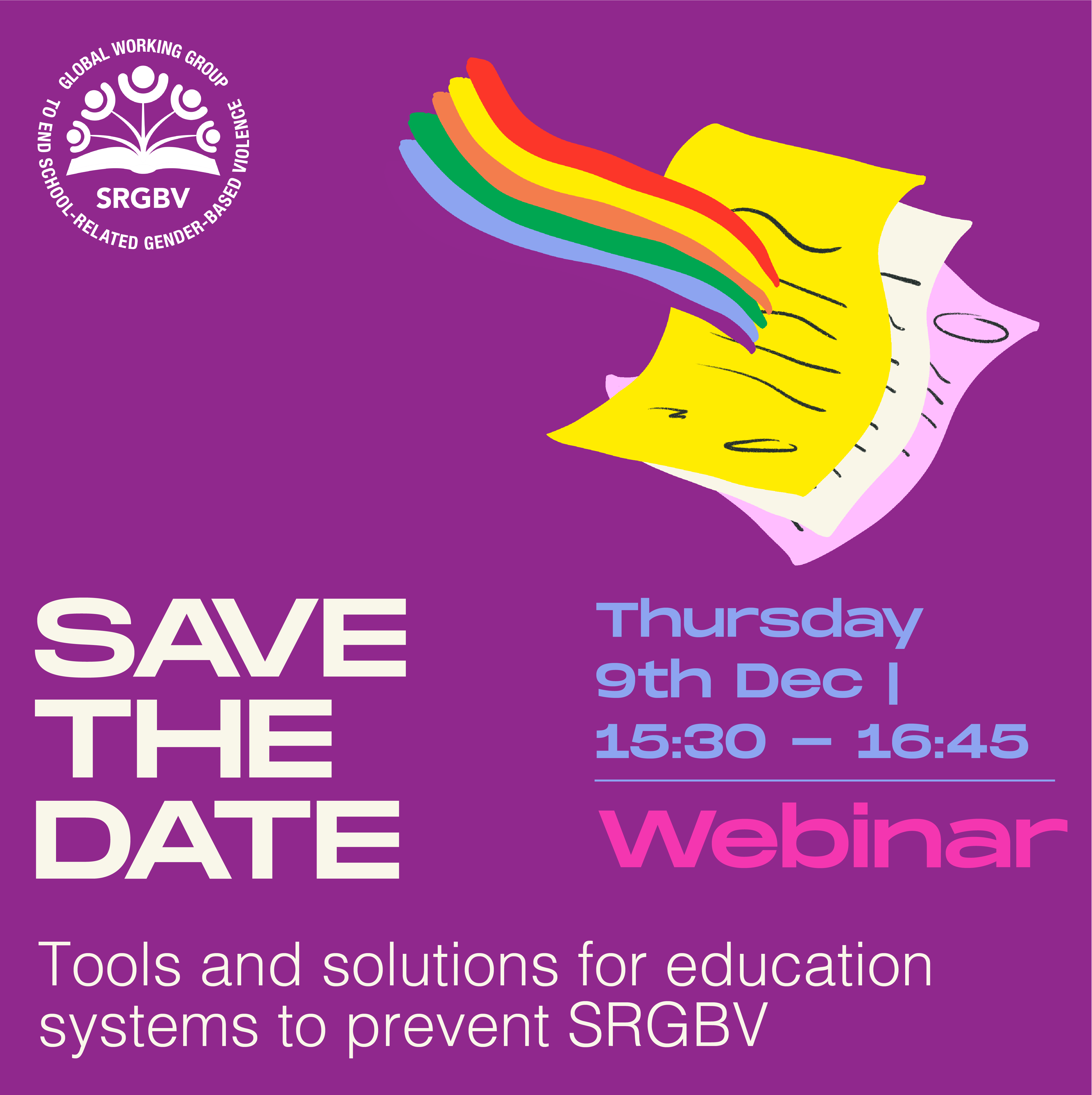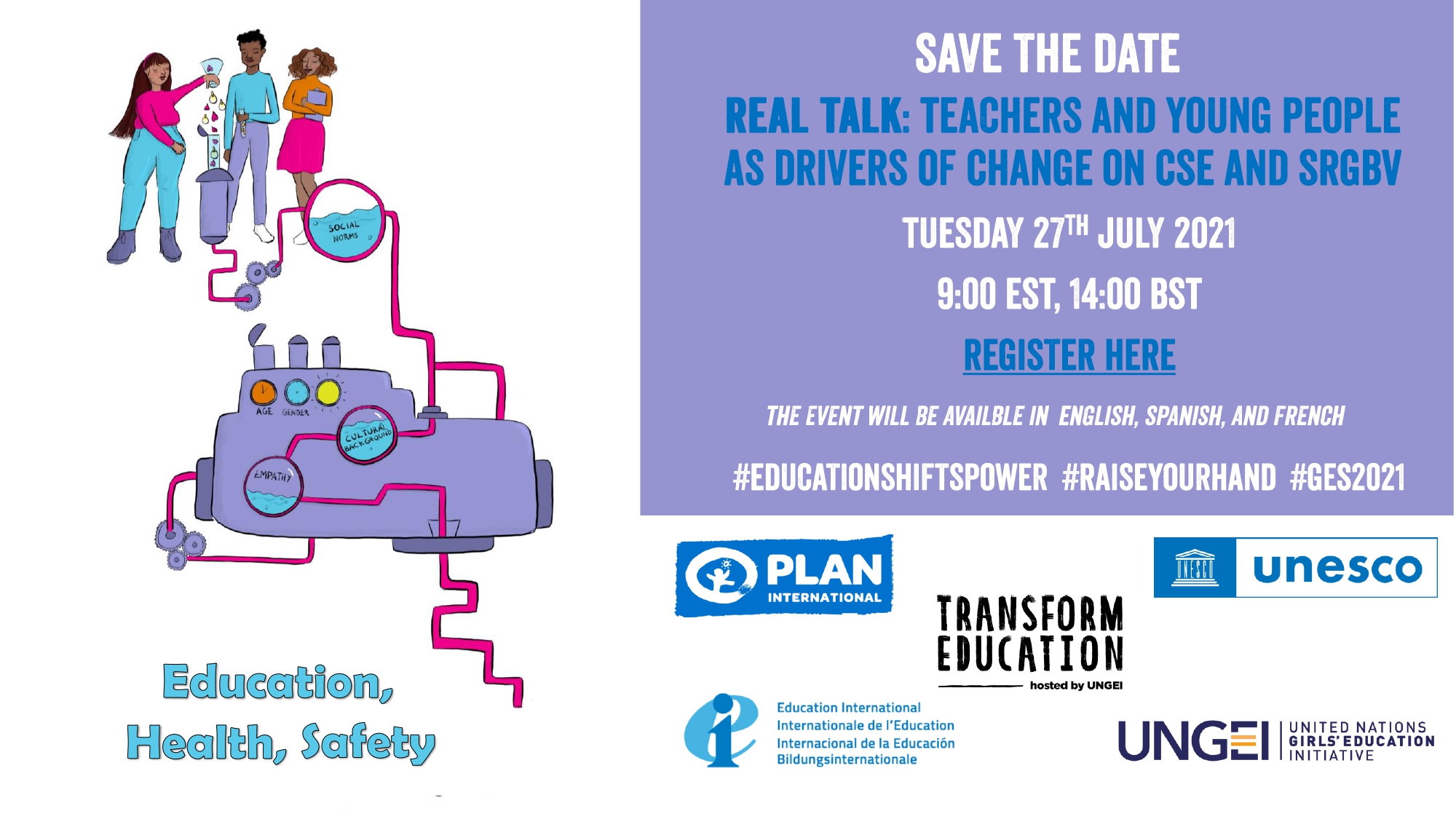Gender-based violence in and around schools poses big challenges to education unions and its members. Because everyone in and around schools — teachers, students, education support personnel — can be both perpetrator and victim of such violence, school-related gender-based violence (SRGBV) is a violation of both the right to quality education, and the right to decent working conditions. The persistence of gender-based violence in classrooms, schools and the institutions that support them undermines the quality of education, depriving learners of their right to a safe education and preventing educators from performing at their best.
Unions are uniquely placed to mobilize vast numbers of teachers and education support personnel towards achieving shared goals. The unions’ work is funded almost entirely from membership dues, which allows them to serve the interests of their members with autonomy and accountability. Education unions have existed for decades and in addition to labour rights, have shaped important facets of human history– notably in the struggle for national independence in many countries. Suffice it to say, education unions are important social actors.
This 16 Days Campaign, we want to highlight the critical role that education unions and their members play in ending gender-based violence in and around schools.
In recent years, education unions have made enduring commitments to address SRGBV. Education International (EI) is the world’s largest federation of unions, representing 32 million education employees in 400 organisations in 170 countries and territories worldwide. In 2015, the 7th EI World Congress adopted a resolution on SRGBV, calling on its member organisations to take action to end SRGBV in their respective contexts. In the same year, the new iteration of the global EI Gender Equality Action Plan (2015–2019) included an explicit reference to working to end SRGBV. The 8th EI World Congress (2019) adopted a resolution on corporal punishment. These internal policy actions expressed a clear mandate and helped to create an enabling environment for EI and its member organisations to prioritise addressing gender-based violence in and around educational settings all over the world.
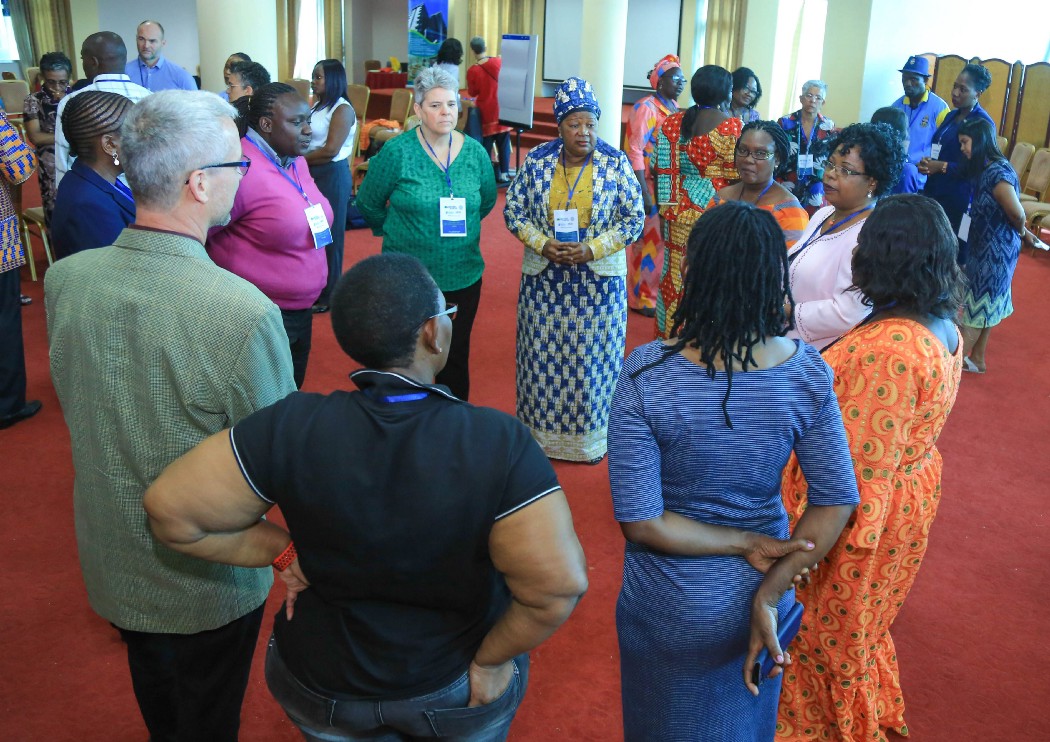
The Education Unions Take Action to End School-related Gender-based Violence programme offers a compelling example of how education unions are putting these commitments into action. The programme was built on a deep collaboration between Education International (EI), the United Nations Girls’ Education Initiative (UNGEI) and Gender at Work, and nine EI member organisations in seven countries (Ethiopia, the Gambia, Kenya, Sierra Leone, South Africa, Uganda and Zambia), with funding from Global Affairs Canada. The aim of the programme was to put teachers, education personnel and education unions at the forefront of efforts to end school-related gender-based violence.
The programme was designed around two main pillars. The first focused on enhancing the ability of participating unions and its members to systematically test, adapt, and disseminate innovative approaches to addressing school-related gender-based violence, at multiple levels, within their contexts. The second pillar of the programme focused on advocacy, policy dialogue and knowledge sharing activities with a broad range of actors and stakeholders at the national, regional, and global levels. This helped to consolidate the enabling environment and ensured that education unions would be supported to continue their work to end SRGBV beyond the life of the programme.
Over four years (2016–2019), Education Unions Take Action reached more than 100,000 teachers and education support personnel across the seven countries. It enabled them to develop effective and sustainable approaches to addressing gender-based violence and reshape policy dialogue on school-related gender-based violence in global fora (including within the Global Working Group to End School-related Gender-based Violence).
The programme used gender action learning processes within each union to empower union members and leaders to challenge gender power dynamics in classrooms, schools and education institutions through experiential, peer-based learning techniques. Methods that proved particularly effective within education unions included:
- Drawing on the power of storytelling to deepen participants’ understanding of complex issues and build confidence, trust and empathy in addressing them;
- Honouring participants’ lived experience to connect with their values and personal motivations, by cultivating reflective spaces that allow people to learn from their own actions and the experiences of others over time;
- Using mind-body-spirit practices to reveal not only “the facts” about SRGBV but also how they feel and what they really mean to teachers and learners, women and men, girls and boys;
- Empowering and freeing people to take action as they saw fit within their own lives and spheres of influence.
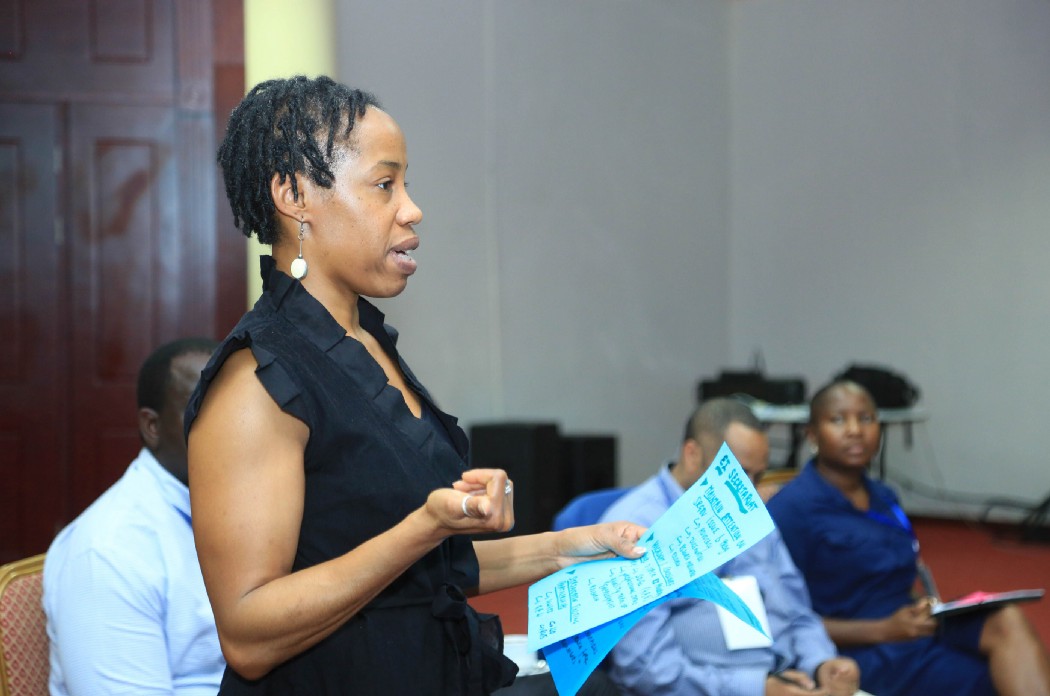
The combination of these approaches enabled participants to ‘find their voice’ and identify oppressive social norms in their work and their lives. They discovered new ways to foster more equitable attitudes, behaviours and relationships around gender within the unions and in classrooms.
The Education Unions Take Action programme demonstrated that when union members confront SRGBV in their own settings, they gain a deeper understanding and are motivated to challenge other dimensions of gender inequalities, including beliefs, behaviors, policies and norms. The contribution of the union leadership and staff responsible for coordinating the unions’ work on gender equality and persevering in challenging established norms and practices cannot be understated. Leadership, political will and hard work were central to the success and sustainability of this work by the unions.
The approaches and outcomes of the programme are now available to a broader audience through a series of stories written by participants, and in a document detailing teacher union strategies to end school-related gender-based violence. An alarming increase in rates of gender-based violence has been recorded in all regions during COVID-19 related lockdowns. As schools reopen, students and teachers will be dealing with trauma from abuse experienced within or outside of the home during the lockdown. The lessons, tools and strategies from the Education Unions Take Action programme have never been more needed by educators and education support personnel.
In sharing their experiences and insights, union leaders and members, teachers and support staff and the organizations that support them have inspired others to take further action in the global effort to eliminate gender-based violence from schools and education institutions. Now more than ever, every effort must be made to ensure every child is safe and secure at school and able to access quality education.
